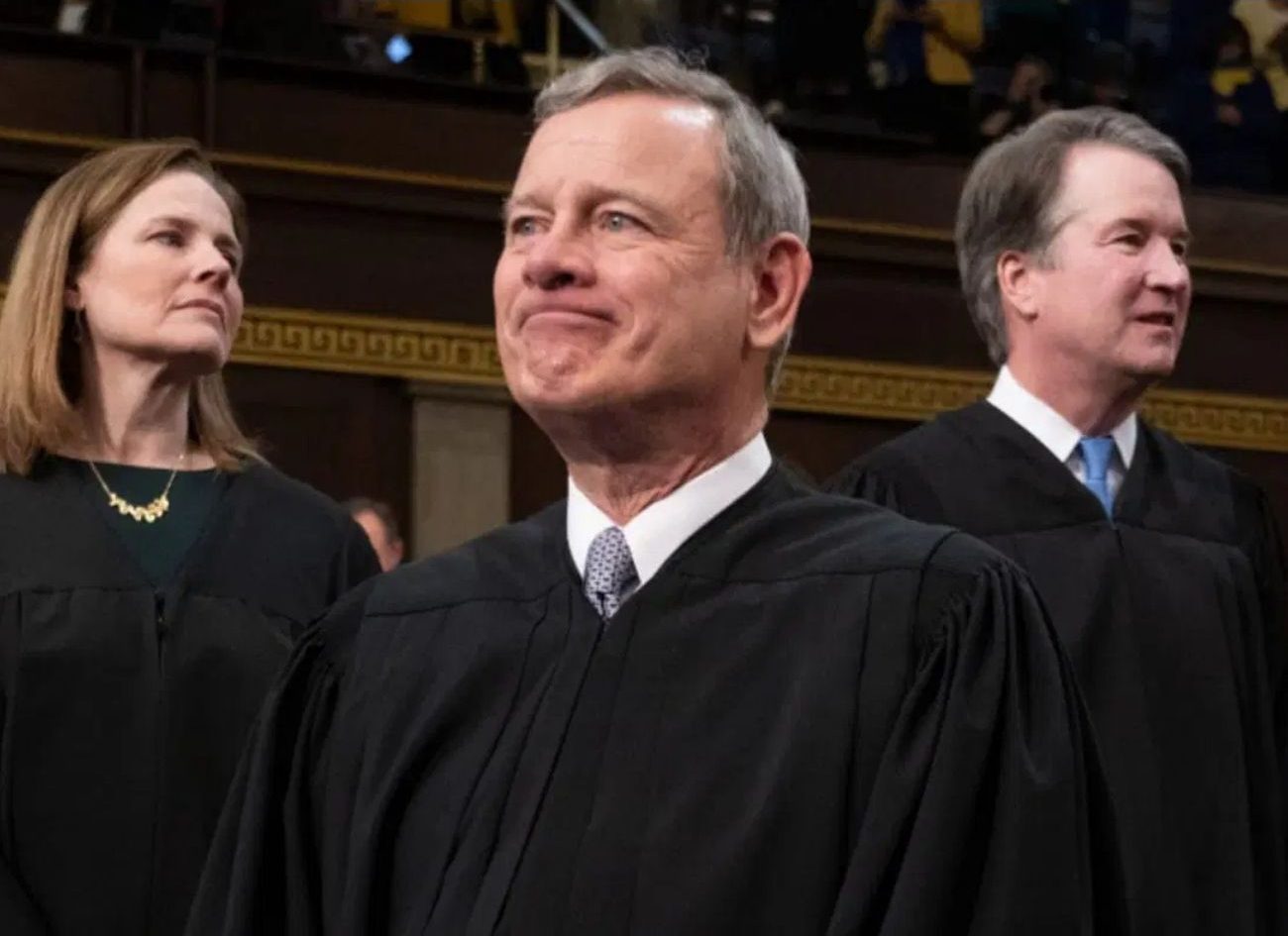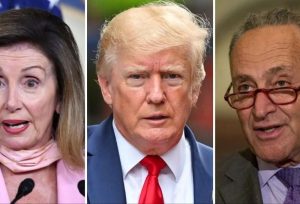The U.S. Supreme Court issued a landmark decision this week on immigration policy, siding with the federal government in its effort to end Temporary Protected Status (TPS) for Venezuelan nationals. The ruling affects an estimated 300,000 migrants living in the United States and clarifies the scope of executive power in immigration matters.
In an 8–1 decision, the Court overturned a lower court injunction that had blocked the termination of TPS. Justice Ketanji Brown Jackson dissented. The case highlights ongoing debates about humanitarian protections, executive authority, and the legal status of migrants who fled unstable conditions in Venezuela.
What is Temporary Protected Status?
Temporary Protected Status is a humanitarian program created by Congress in 1990. It allows nationals from certain countries facing armed conflict, natural disasters, or extraordinary conditions to live and work legally in the United States for a designated period.
TPS does not provide a path to permanent residency or citizenship. Instead, it is a temporary measure that can be extended or ended at the discretion of the Secretary of Homeland Security. The law requires regular reviews of country conditions to determine whether protections remain necessary.
Venezuela’s TPS History
Venezuela has been one of the largest recipients of TPS in recent years.
-
March 2021: Then–Homeland Security Secretary Alejandro Mayorkas designated Venezuela for TPS. The decision cited widespread humanitarian concerns, including political unrest, shortages of essential goods, and unsafe conditions for return.
-
September 2022: The designation was extended for 18 months.
-
October 2023: Mayorkas both extended and “redesignated” TPS for Venezuela, creating overlapping programs that covered more people.
-
January 2025: Mayorkas extended TPS once more, consolidating filings so all Venezuelan beneficiaries had protection through October 2026.
These repeated extensions reflected concerns about Venezuela’s political instability and humanitarian crisis.
A Shift Under the New Administration
In February 2025, Secretary of Homeland Security Kristi Noem issued a memo revoking Venezuela’s TPS designation. The memo concluded that conditions no longer justified protection and argued that it was against the U.S. national interest to continue the program.
The decision triggered immediate legal challenges. Advocacy groups and several states argued that ending TPS would uproot families, harm communities, and endanger individuals who fled violence and instability.
In March 2025, U.S. District Judge Edward Chen blocked the administration from enforcing the policy, calling some of the government’s arguments “baseless.”
The Supreme Court Steps In
The case quickly reached the Supreme Court. At issue was whether the lower court had the authority to block the executive branch from ending TPS.
Solicitor General John Sauer argued that immigration policy decisions belong to the executive branch, particularly when they involve foreign relations. “The district court’s reasoning is untenable,” Sauer told the justices. He maintained that judges should not interfere with executive decisions that involve diplomacy and national security.
The justices largely agreed. In the majority opinion, the Court emphasized that Congress gave broad discretion to the executive branch to manage TPS. The ruling held that courts cannot second-guess these determinations unless they clearly violate statutory requirements.
The 8–1 Vote
The decision was notable for its bipartisan alignment. Justices across the ideological spectrum — from conservative members to traditionally liberal justices — supported the administration’s authority.
Only Justice Ketanji Brown Jackson dissented. She argued that courts should have the ability to scrutinize whether executive decisions were based on sufficient evidence. In her view, unchecked executive power could undermine the humanitarian purpose of TPS.
Humanitarian Concerns
The ruling has immediate consequences for the Venezuelan community in the U.S. Many migrants under TPS have lived in the country for years. They have jobs, children in schools, and deep ties to local communities.
Advocacy groups warn that the decision could lead to mass deportations or force individuals into undocumented status if no alternative pathways are provided. They emphasize that Venezuela continues to struggle with political repression, economic collapse, and human rights concerns.
On the other hand, supporters of the Court’s decision argue that TPS was never intended to be permanent. They say the ruling restores the program to its original purpose: a temporary measure linked to specific country conditions.
Political Reactions
The Supreme Court’s ruling sparked swift political responses.
-
Supporters of the decision praised it as a restoration of executive authority over immigration policy. They argued that allowing courts to block TPS terminations undermined the separation of powers.
-
Critics expressed concern that the ruling ignores humanitarian realities and could destabilize immigrant communities across the country.
Lawmakers are now under increased pressure to address TPS in legislation, as the program affects not only Venezuelans but also migrants from countries such as Haiti, Honduras, El Salvador, and Nicaragua.
Broader Legal Implications
Legal scholars note that the ruling sets an important precedent. By affirming the executive branch’s authority, the Court effectively limited the role of federal judges in reviewing TPS decisions.
This precedent could shape future cases involving immigration policy, including asylum, parole, and enforcement priorities. It also underscores the importance of executive discretion in areas where foreign policy and humanitarian concerns overlap.
What Happens Next?
With the injunction lifted, the administration now has the legal authority to proceed with ending TPS for Venezuelans. However, implementation details remain uncertain. The Department of Homeland Security may issue guidance in the coming weeks outlining timelines and processes.
Some possibilities include:
-
Allowing current TPS holders to remain until their work permits expire.
-
Setting a grace period for voluntary departure.
-
Offering case-by-case relief through asylum or other legal avenues.
Advocacy groups are expected to continue pressing Congress for a legislative solution that provides permanent protections.
International Context
Venezuela is not the only country with TPS status. Other nations with large numbers of beneficiaries include:
-
El Salvador
-
Honduras
-
Haiti
-
Nicaragua
-
Sudan
The Court’s ruling could influence how the U.S. approaches these designations. Future administrations may have more confidence to revoke or extend TPS without fear of judicial intervention.
Voices From the Community
Many Venezuelan TPS holders have shared their stories publicly. Some fled political persecution. Others left behind collapsing infrastructure, food shortages, and limited medical care. For them, TPS offered stability and hope.
Community organizations report widespread anxiety following the Court’s decision. Families worry about separation, loss of jobs, and uncertainty about their future in the United States.
At the same time, supporters of the ruling stress that TPS was never a pathway to permanent residency. They argue that Congress, not the courts, should decide whether to create long-term protections for Venezuelan nationals.
Conclusion
The Supreme Court’s decision on Venezuelan TPS marks a pivotal moment in U.S. immigration policy. By reaffirming executive discretion, the Court has clarified the limits of judicial oversight in humanitarian programs.
For affected Venezuelans, the ruling creates uncertainty and concern about what comes next. For policymakers, it highlights the need for comprehensive immigration reform that balances humanitarian considerations with executive authority.
As the debate continues, the lives of hundreds of thousands of people remain directly shaped by the intersection of law, policy, and politics.

Sarah Mitchell is a bestselling novelist recognized for her insightful and emotionally resonant stories that explore the complexities of human relationships. Originally from Denver, Colorado, Sarah grew up in a family of teachers who nurtured her curiosity and love for storytelling. She studied psychology at Stanford University, where she became fascinated by the intricacies of human behavior—an interest that would later shape her writing career. Sarah’s novels are praised for their nuanced characters, intricate plots, and ability to capture the subtle tensions that define love, friendship, and family ties. Her breakthrough novel, The Spaces Between Us, became an instant bestseller, lauded for its honest portrayal of strained family relationships and the fragile bonds that hold people together. Since then, she has published several works that continue to captivate audiences around the world. Outside of her writing career, Sarah is passionate about mental health advocacy and often partners with organizations to promote awareness and support for those struggling with emotional well-being. Her personal life is quieter—she enjoys hiking in the Colorado mountains, practicing yoga, and spending time with close friends. With each new book, Sarah Mitchell cements her reputation as a writer who illuminates the beauty and struggles of human connection.









